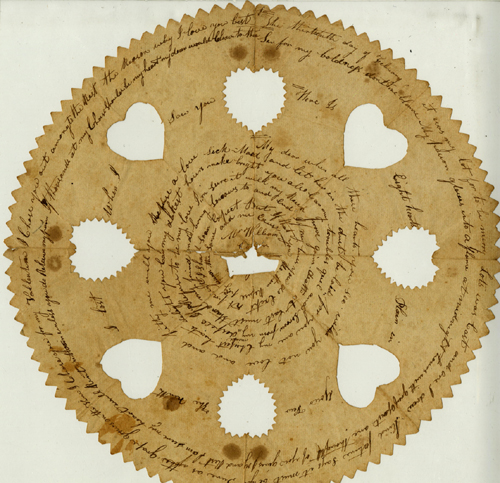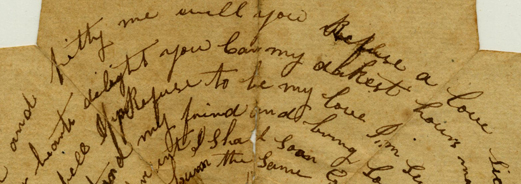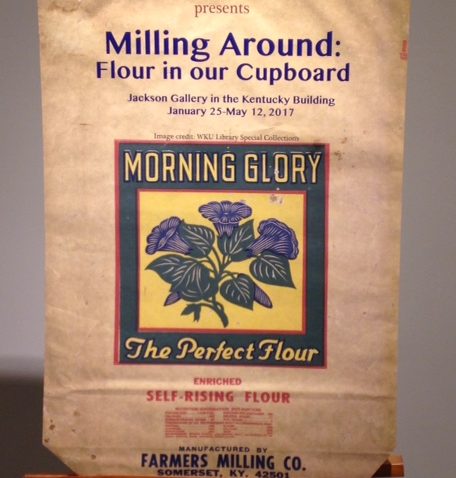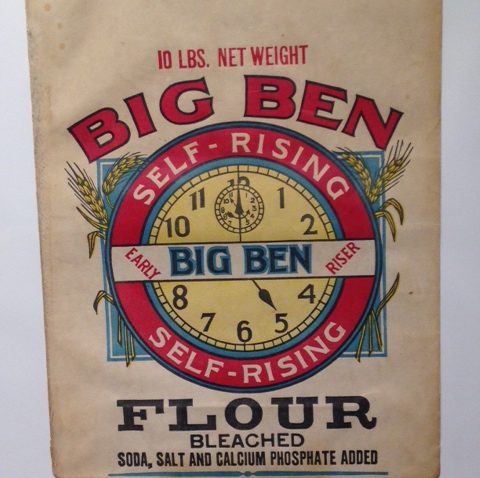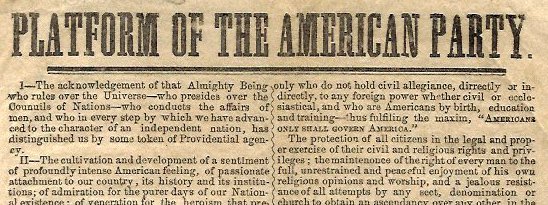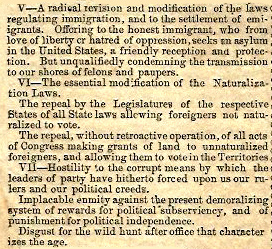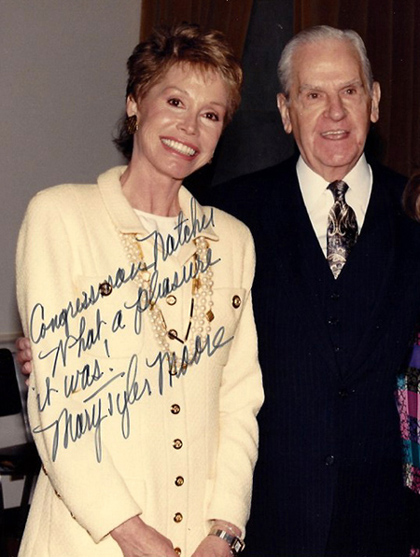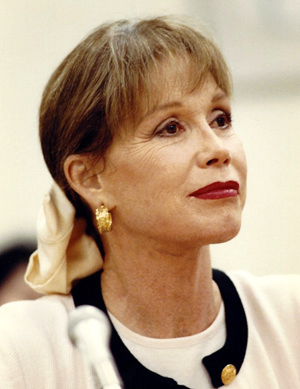
Bellarmine historian Eric Roorda was the featured speaker in WKU Libraries’ Far Away Places series on the evening of March 23, 2017 at Barnes & Noble Bookstore in Bowling Green, KY, on the topic The Dominican Republic: The Land Columbus Loved, or the Land that Loathes Columbus. His talk concluded with him signing his eponymous book.
Far Away Places presents “The Dominican Republic: The Land Columbus Loved, or the Land that Loathes Columbus”
Comments Off on Far Away Places presents “The Dominican Republic: The Land Columbus Loved, or the Land that Loathes Columbus”
Filed under Events, Far Away Places, Flickr Photos, General, Latest News, New Stuff, Podcasts, Stuff, Uncategorized
Advice from an “Infidel”
Like his three brothers, Romanus Emerson (1782-1852) seemed destined for the ministry, but a speech impediment sent the New Hampshire native instead to work as a carpenter and merchant in Boston. A cousin of transcendentalist Ralph Waldo Emerson, Romanus remained a devout Baptist until his 50s when, under the influence of Thomas Paine’s The Age of Reason and his own freethinking nature, he washed his hands of all religion and became an atheist – in his word, an “infidel.” His self-composed funeral oration condemned theology as “a system of deceit and fraud” and exhorted his survivors to get a good education, observe the golden rule, and accept that “there is no part or parcel of the creature man that survives his decomposition.”
But Romanus was still a believer in 1822 when he and his wife Jemima wrote to 33-year-old Fanny Goodridge, who had left Boston to teach school in Lexington, Kentucky. Jemima was interested in sharing news and hearing of Fanny’s “sorrows and joys,” but was also anxious about her new life “amungst strangers” and hoped that after serving the next generation “in that place,” she would return safely to her “native land.” Romanus, on the other hand, wrote in full lecture mode, instructing her to remain pious above all else and never to lose sight of God. “Let the blessed bible,” he urged, “be your first and your last, your highest and your lowest, your furtherist and your nearest . . . your downsiting and your uprising.”
Even if Romanus ended up disowning his own advice, Fanny stayed the course. A year later, she began a Sabbath School in Michigan, and a few years after that emigrated with her new husband to Kansas, where they spent most of their lives as missionaries and teachers among the Potawatomi Indians.
Romanus and Jemima Emerson’s letter is part of the Manuscripts & Folklife Archives of WKU’s Department of Library Special Collections. Click here to access a finding aid. For more collections, search TopSCHOLAR and KenCat.
Comments Off on Advice from an “Infidel”
Filed under Manuscripts & Folklife Archives
Kentucky Live! presents David J. Bettez with “Kentucky and the Great War: World War I on the Home Front”
David Bettez, the retired Director of the Office of International Programs at the University of Kentucky in Lexington, spoke in this year’s Kentucky Live! series on March 9, 2017 at Barnes & Noble Bookstore (1680 Campbell Lane). He talked about his newest book Kentucky and the Great War: World War I on the Home Front . The publication of his book and his talk coincide with the 100th anniversary of the United States’ entry into World War I.
Comments Off on Kentucky Live! presents David J. Bettez with “Kentucky and the Great War: World War I on the Home Front”
Filed under Events, Flickr Photos, General, Kentucky Live, Latest News, Manuscripts & Folklife Archives, New Stuff, Stuff, Uncategorized
Her Ninth Heart
On this Valentine’s Day, here is our most spectacular, and probably oldest (ca. 1850) appeal to the affections — in this case (we think) of one Mr. William Carson — from a “love sick Maid.” Measuring a full 12 inches in diameter, its verse begins on the outer edge with the lady’s decision to choose him “for my Vallentine,” then circles inward with dizzying entreaties to the gentleman not to “Refuse to be my love” — “for you are my chiefest hearts delight / you can my darkest hours make bright.”
 As for all those handmade cutouts: There is Eight hearts Plain in your view / The ninth I lost when I saw you.
As for all those handmade cutouts: There is Eight hearts Plain in your view / The ninth I lost when I saw you.
 This valentine (and many more) can be found in the Manuscripts & Folklife Archives collections of WKU’s Department of Library Special Collections. Click here for a finding aid. For more, search TopSCHOLAR and KenCat.
This valentine (and many more) can be found in the Manuscripts & Folklife Archives collections of WKU’s Department of Library Special Collections. Click here for a finding aid. For more, search TopSCHOLAR and KenCat.
Comments Off on Her Ninth Heart
Filed under Manuscripts & Folklife Archives
Milling Around
Western Kentucky University’s Department of Library Special Collections is pleased to present “Milling Around: Flour in Our Cupboard,” an exhibit that features forty of the nearly two hundred Kentucky flour bags from its collection. The bags with bold and bright iconography document an industry that was once local but is now consolidated into huge conglomerates.
At one time almost every hamlet of any consequence boasted one or more water- or steam-powered mills that produced flour and/or corn meal. Beside flour bags, the exhibit features stationery with mill logos, books about mills—including a 1795 copy of the Young Mill Wright, photographs, and other ephemera, as well as a millstone. One case features cloth flour bags. After consuming the flour, customers used the bleached cotton bags for towels, cleaning rags, backing for quilts and even clothing. As a marketing ploy, many flour mills eventually sold their flour in printed cotton fabric bags of varied colors and designs. These bags were specifically made to be converted into fabric for clothing, quilting and other household uses.
“Milling Around” will run from February 1 to May 12, 2017.
Comments Off on Milling Around
Filed under Events, Manuscripts & Folklife Archives
212° Academy students win Young Authors contest
 212° Academy students Allison Cleaver and Eva Cook have been selected as the winners of the SOKY Book Fest – 212° Academy Young Authors Contest. Cleaver, daughter of Kevin and Terri Cleaver, wrote the historical fiction book My World in Two, and Cook, daughter of Ryan and Amelia Cook, wrote the historical fiction book Dreams Go Down in History #1: Tea for Two. Cleaver is a 6th grader from Jody Richards Elementary School, and Cook is a 6th grader from Alvaton Elementary School.
212° Academy students Allison Cleaver and Eva Cook have been selected as the winners of the SOKY Book Fest – 212° Academy Young Authors Contest. Cleaver, daughter of Kevin and Terri Cleaver, wrote the historical fiction book My World in Two, and Cook, daughter of Ryan and Amelia Cook, wrote the historical fiction book Dreams Go Down in History #1: Tea for Two. Cleaver is a 6th grader from Jody Richards Elementary School, and Cook is a 6th grader from Alvaton Elementary School.
WKU Libraries Literary Outreach Coordinator and SOKY Book Fest organizer Sara Volpi said there was a wonderful variety of books this year. “We were exceedingly impressed with the imagination and effort put into each book the 212° Academy students wrote,” said Volpi. “The students work diligently for months, drafting their stories, revising, and sourcing illustrations. Picking the winners is always tough,” said Volpi.
One highlight of the 212° Academy experience is participation in SILS (Special Interest Labs), including areas of study such as Inventor’s Workshop, Roller Coaster Physics, and Wild Worlds. Led by teacher Andrea Heming, students in the Lulu Online Book Publishing SIL wrote, illustrated, and published original books which are entered into the Young Writers Contest.
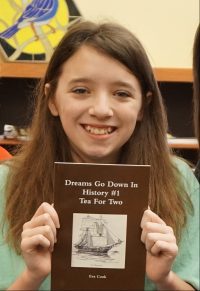 “Students were able to research and write about something they were passionate about,” said Heming. “They were so excited to receive their books and see all their hard work come to fruition.”
“Students were able to research and write about something they were passionate about,” said Heming. “They were so excited to receive their books and see all their hard work come to fruition.”
The contest is a combined effort between the Southern Kentucky Book Fest partners (Barnes & Noble Booksellers, Warren County Public Library, and WKU Libraries) and the teachers at the 212° Academy. Cleaver and Cook were recognized at their schools and are invited to sign copies of their books at the Southern Kentucky Book Fest on April 21-22, along with R.L. Stine and 170 plus authors.
For more information, visit www.sokybookfest.org or contact Sara Volpi at (270) 745-4502.
Comments Off on 212° Academy students win Young Authors contest
Filed under Latest News, New Stuff, SOKY Book Fest
“I Know Nothing”
Streaking across the political firmament in the 1850s, the American Party rose in response to a wave of immigrants, many of them Catholics, to the United States. The party saw the newcomers as a threat to American values and economic security, and feared that their allegiance to the Pope would compromise their loyalty to the country.
Collections in the Manuscripts & Folklife Archives of WKU’s Department of Library Special Collections tell us of the interest the American Party attracted throughout the country. It was originally more of a secret society, with a formal admission ceremony described by Robert Hale, and a command to members to say “I know nothing” when pressed for their beliefs. The “Know Nothing Party,” as it came to be called, stood for restricting immigration, limiting eligibility for political office to native-born Protestants, and imposing a lengthy residence requirement for U.S. citizenship.
Although the Know Nothings were most prominent in the Northeast, they drew comment from every region. Writing from California to his father in Dry Fork, Kentucky, George Young observed that “the Know Nothings are increasing very fast” and “I am inclined to believe that it will do this state much good.” A more skeptical letter-writer in Texas told the Goodnight family of Warren County, Kentucky that party supporters “talk a great deal about true Americans but I don’t believe there is a true Republican amongst them.”
In a speech delivered in Virginia, Georgia native Michael Cluskey, later a newspaper editor in Louisville, offered a lengthy and increasingly passionate criticism of the Know Nothings. He debunked the “bugbear of immigration,” which was “made to appear frightful by the unfounded statements of certain Know Nothing orators.” Contrary to the claim that “there were 1000 000 million of emigrants into this country during the last year,” he pointed to actual native-born-to-immigrant ratios of 38 to 1 in Virginia and 8 to 1 in the U.S. A recent decrease in immigration, in fact, was threatening to cause a labor shortage, especially for public works like roads and canals, to which “native born Americans generally don’t choose to expose themselves.” As for the party’s anti-Catholic platform, Cluskey observed that “nothing is so easily stirred up in the breast of man as the serpent of Religious prejudice,” a “cry of wolf” through which politicians could achieve darker objectives. “Small temporary shocks like these,” he argued, were more dangerous to the republic than “direct blows at its stability.”
The 1856 presidential election, in which their candidate finished last, spelled the end of the Know Nothings. In a letter written from Madisonville, Kentucky, Charles Cook understood why. “I still cherish the leading principles of the American party as the only efficient guarantee against the dangerous influences and corrupting tendencies of foreign emigration,” he admitted, “but these are questions of minor importance.” The issue now roiling the country, and the one to which “the earnest efforts of every patriotic Union loving man should be turned,” was slavery.
Click on the links to access finding aids for these collections. For more collections relating to immigrants and the Know Nothings, search TopSCHOLAR and KenCat.
Comments Off on “I Know Nothing”
Filed under Manuscripts & Folklife Archives
Far Away Places presents Noah Ashley, Asst. Prof., Biology, WKU and “Arctic Songbirds of Alaska”
WKU Libraries’ Far Away Places speaker series kicks off its spring season with Noah Ashley, Assistant Professor of Biology at WKU with “Arctic Songbirds of Alaska”. He talked about “Arctic Songbirds of Alaska” on the evening of February 23, 2017 at Barnes & Noble Booksellers, Bowling Green, KY.
Comments Off on Far Away Places presents Noah Ashley, Asst. Prof., Biology, WKU and “Arctic Songbirds of Alaska”
Filed under Far Away Places, Uncategorized
Used Book Sale March 3-5 to benefit SOKY Book Fest
The Southern Kentucky Book Fest Used Book Sale will be held Friday, March 3 through Sunday, March 5 at the Bob Kirby Branch of the Warren County Public Library, 175 Iron Skillet Court, in Bowling Green. The sale will be held from 9 am to 5 pm on Friday, March 3; 9 am to 5 pm on Saturday, March 4; and from 1 pm to 5 pm on Sunday, March 5.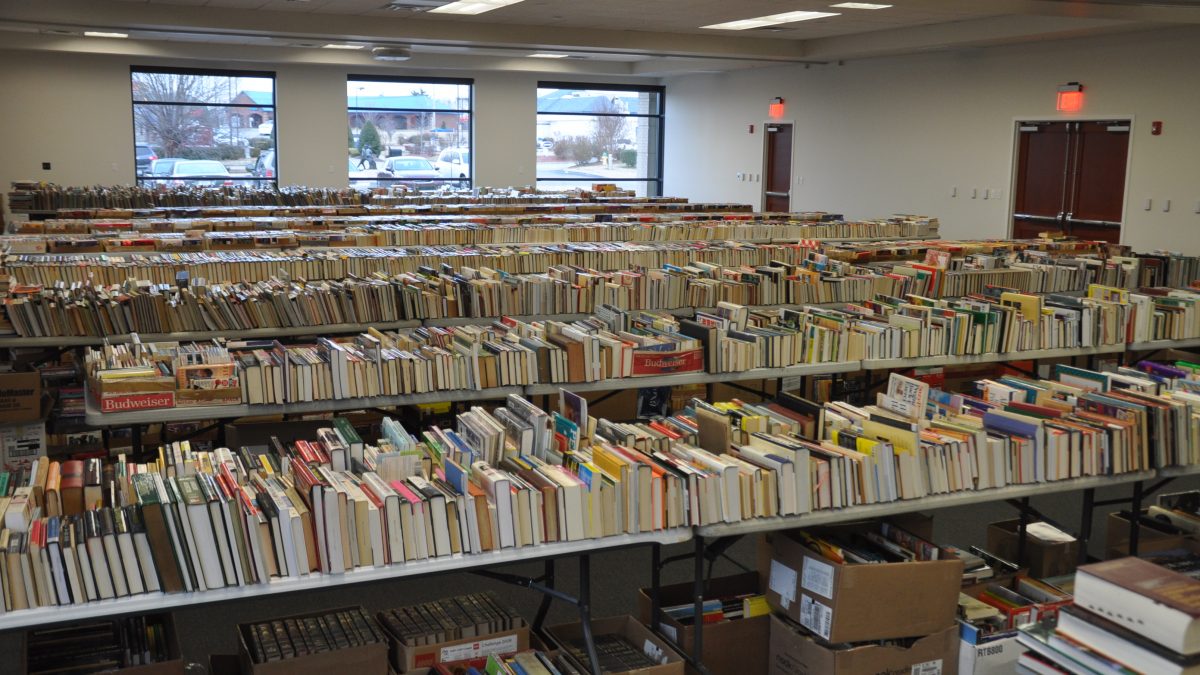
According to Sara Volpi, WKU Libraries Literary Outreach and SOKY Book Fest Coordinator, thousands of books, CDs, records, and DVDs will be available for $1 or less at the event. “Proceeds from the Used Book Sale benefit the Southern Kentucky Book Fest partnership and area literacy projects,” said Volpi. “We’ll have a huge selection of high-quality materials like cookbooks, popular fiction in hardback and paperback, children’s books, and more.”
Donations of books, videos, CDs, records, DVDs, and audio books are welcome at all Warren County Public Library locations, Barnes and Noble Booksellers, and at WKU Libraries Cravens 4th floor (at circulation desk). Magazines and textbooks are not accepted. Donated materials are tax deductible.
SOKY Book Fest is a partnership project of Barnes & Noble Booksellers, Warren County Public Library, and WKU Libraries. The partnership’s mission is to encourage reading and the love of books and to be a positive force in promoting literacy in the region and state.
For more information, visit www.sokybookfest.org or contact Sara Volpi at (270) 745-4502.
Comments Off on Used Book Sale March 3-5 to benefit SOKY Book Fest
Filed under Latest News, New Stuff, SOKY Book Fest
Mary Richards Goes to Washington
The death of Mary Tyler Moore on January 25 reminded many of us how much we miss Mary, Rhoda, Lou, Ted and the gang, but tributes have also recognized her real-life, longtime advocacy on behalf of people with Type 1 diabetes (also known as juvenile diabetes).
Diagnosed with the condition in 1969, Moore became International Chairman for the Juvenile Diabetes Research Foundation and the first celebrity to lend her name to the cause. She frequently appeared before congressional committees to encourage awareness, research and funding. In the course of her visits to Washington, Moore became good friends with Congressman William H. Natcher of Kentucky, chairman of the appropriations subcommittee for health funding.
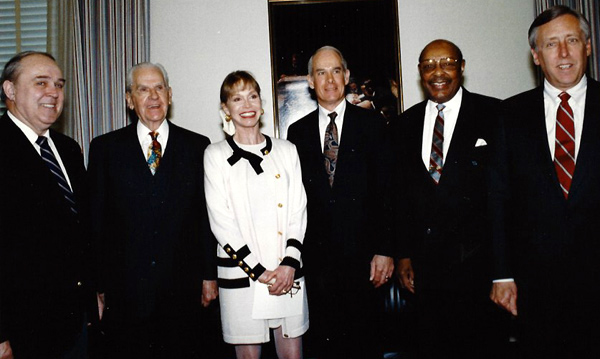 Among the many hundreds of photographs in the William H. Natcher Collection, part of the Manuscripts & Folklife Archives of WKU’s Department of Library Special Collections, are these of Moore’s visits to Washington. When Natcher died, she was one of many notable mourners who attended his funeral in Bowling Green on April 6, 1994.
Among the many hundreds of photographs in the William H. Natcher Collection, part of the Manuscripts & Folklife Archives of WKU’s Department of Library Special Collections, are these of Moore’s visits to Washington. When Natcher died, she was one of many notable mourners who attended his funeral in Bowling Green on April 6, 1994.
For more information on the Natcher Collection, contact us at mssfa@wku.edu.
Comments Off on Mary Richards Goes to Washington
Filed under Manuscripts & Folklife Archives



